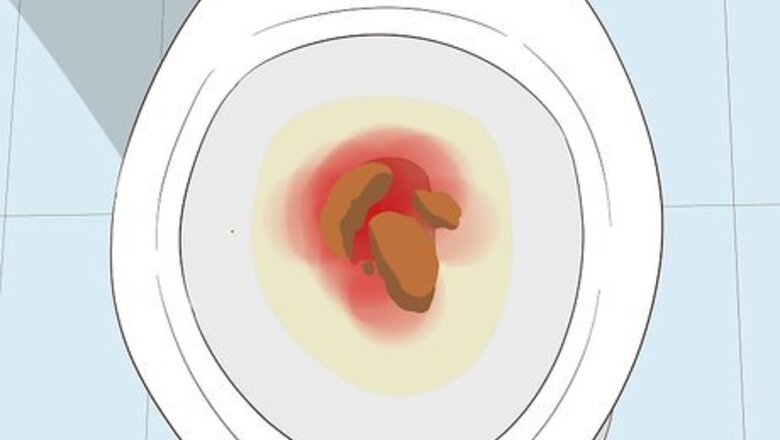
views
X
Expert Source
Joshua Ellenhorn, MDBoard Certified General Surgeon & Surgical Oncologist
Expert Interview. 28 April 2019.
Unfortunately, at the onset, colon cancer has few, if any, symptoms. If you experience symptoms of colon cancer, try not to worry, since they can mimic the symptoms of several other conditions. However, do see your doctor right away. The best way to catch colon cancer early is to get regular medical checkups and screenings.[2]
X
Trustworthy Source
Mayo Clinic
Educational website from one of the world's leading hospitals
Go to source
Identifying Colon Cancer Symptoms
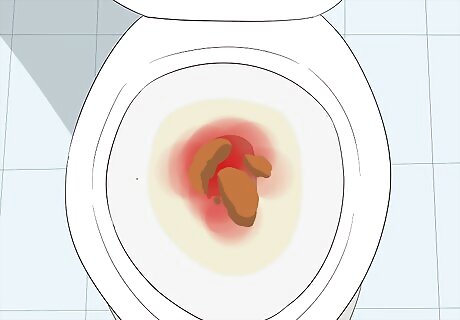
Pay attention to blood in your stool. If you have ongoing rectal bleeding that doesn't seem to be a result of hemorrhoids or a tear, it's a good idea to go to the doctor and get checked out. Even if you only notice a small amount on your toilet paper, it's important to get your doctor's input. Blood in the stool is a common symptom of colon cancer. Blood can make your stool look either bright red or darker than normal. Bleeding from high up in your digestive tract can make your stool look black. If you are not sure whether you see blood or not, be safe and contact your doctor anyway. Blood in your stool can also cause an unpleasant odor. If you notice a drastic change in the smell of your stool, talk to your doctor as soon as possible.
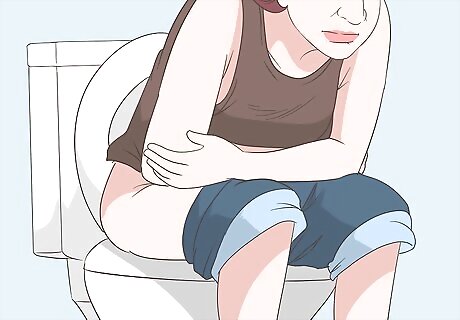
Look for changes in your bowel movements, like diarrhea or constipation. If you are experiencing intermittent diarrhea and constipation, that's something to look into. People with colon cancer may also have long, narrow stools. Or, you might feel like you still need to go even after having a bowel movement. Talk to your doctor if you have symptoms like these lasting longer than 3-4 days. Pay attention to patterns you notice with your bowel movements. If things seem to feel different or you notice anything that worries you, whether it’s a change in how often you go to the bathroom or a difference in your stool consistency, make an appointment with your doctor. These symptoms do not necessarily indicate that you have colon cancer. You might notice similar symptoms with irritable bowel syndrome (IBS) and a host of other medical conditions.
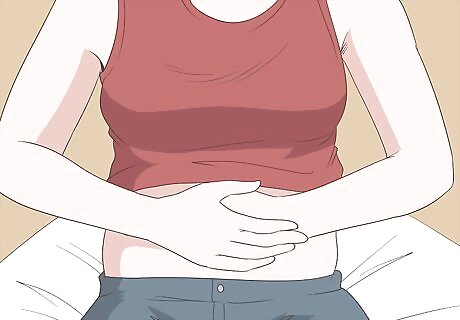
Be aware of abdominal pain and bloating. These symptoms go along with the uncomfortable changes you might experience in your bowel movements. If you have pain in your abdominal region as well as bloating that doesn't seem to have another cause, see your doctor. You might also experience pelvic pain. Again, these symptoms are shared by many other illnesses, so having them doesn't necessarily indicate you have colon cancer. Still, it's a good idea to get them checked out.
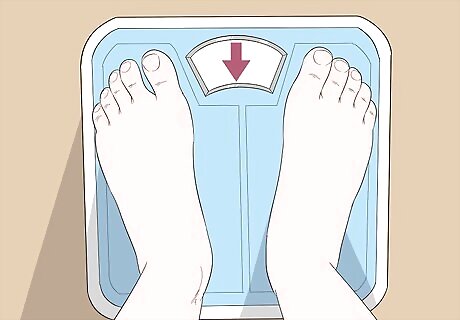
Watch for changes in your weight or appetite. People with colon cancer may experience a loss of appetite, and may or may not have unexplained weight loss. If you're losing the desire to eat full meals and don't enjoy foods you used to eat, colon cancer may be the culprit. Pay attention to changes in your weight, especially if it seems to slide steadily down without effort on your part. It’s normal for your weight to fluctuate a little from time to time. However, if you lose 10 pounds (4.5 kg) or more over the course of 6 months or less for no obvious reason, make an appointment with your doctor.
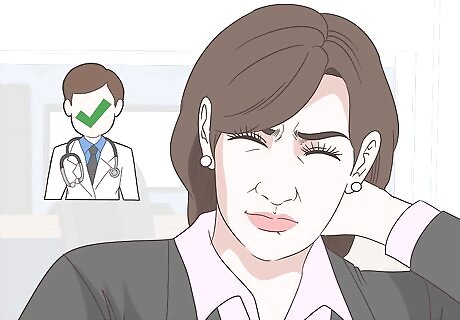
Make note of whether you are uncharacteristically fatigued. This is a common symptom of many types of cancer, colon cancer included. If you feel deeply tired and weak in conjunction with the other colon cancer symptoms, see your doctor right away. Watch for tiredness or fatigue that doesn’t get better when you rest.
Getting a Medical Diagnosis
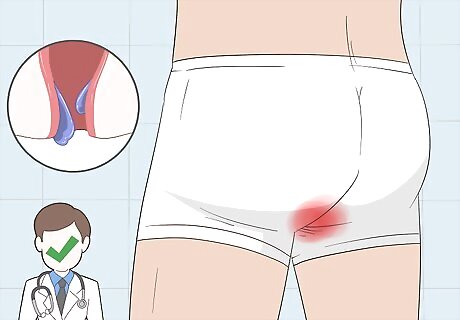
Call your doctor if you experience any symptoms of colon cancer. If you have any possible symptoms of colon cancer, set up an appointment with your doctor right away. They can run tests to look for signs of cancer or rule out other conditions that can cause similar symptoms. Other conditions that can mimic the symptoms of colon cancer include gastro-intestinal infections, irritable bowel syndrome, and hemorrhoids.
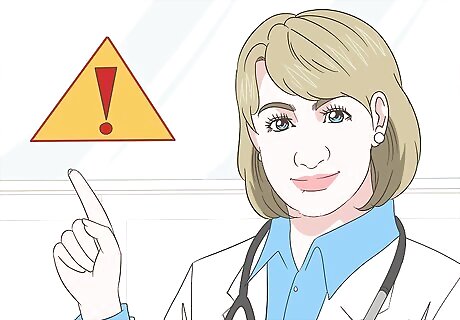
Talk to your doctor about your health history and risk factors. Telling your doctor about your risk factors can help them determine whether you might have colon cancer. Age is the leading factor when it comes to risk, as the majority of people who get colon cancer are over the age of 50. However, there are several other factors that can play a part. They include: Being African American. African Americans are at greater risk than other races for getting colon cancer. Having a personal history of colon cancer or polyps. Having an inherited syndrome that can lead to colon cancer, such as familial adenomatous polyposis and hereditary nonpolyposis colorectal cancer (Lynch syndrome). Leading a sedentary lifestyle. Getting more exercise can help reduce your risk. Eating a low-fiber, high fat diet. Changing your diet to include more fruits and vegetables and less fat and meat can help reduce your risk. Having diabetes or obesity. Smoking and drinking alcohol.
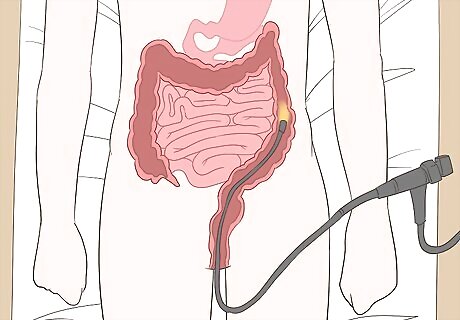
Get regular screenings if your doctor recommends them. The best way to prevent colon cancer or catch it early is to undergo regular screening tests after the age of 50. These screenings can help determine whether cancerous or precancerous growths are present. The doctor will perform one or more of the following procedures to determine whether you may have colon cancer: A fecal occult blood test (FOBT), to check for hidden blood in the stools. A stool DNA test to check for genetic cancer markers in your stool. This test can detect precancerous growths in your colon, which increases your chances of preventing the cancer or catching it early. A sigmoidoscopy, in which a lighted instrument called a sigmoidoscope is used to check for polyps and growths in the rectum and lower colon. A colonoscopy, in which a colonoscope is used to examine the entire colon for cancerous or precancerous growths, which are removed and biopsied if found. A virtual colonoscopy or double contrast barium enema (DCBE), which are different types of x-rays that show polyps and growths on the colon.
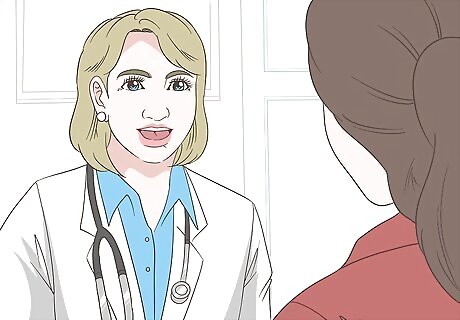
Discuss your treatment options if you test positive for colon cancer. Getting a cancer diagnosis is scary and upsetting. Fortunately, there are a variety of treatment options to help fight the cancer and manage your symptoms. Talk to your doctor about the possible risks and benefits of the different treatments. The right treatment(s) for you will depend on your overall health and how advanced or widespread the cancer is. For example, if you have a small, early stage colon cancer, your doctor may be able to remove it surgically during a colonoscopy. For more advanced colon cancer, you might need additional treatments, such as chemotherapy, radiation therapy, or surgical removal of part of your colon. If you’re struggling emotionally, your doctor can recommend therapists or support groups that specialize in helping cancer patients and their families. Don’t hesitate to reach out to your loved ones for support, too.




















Comments
0 comment